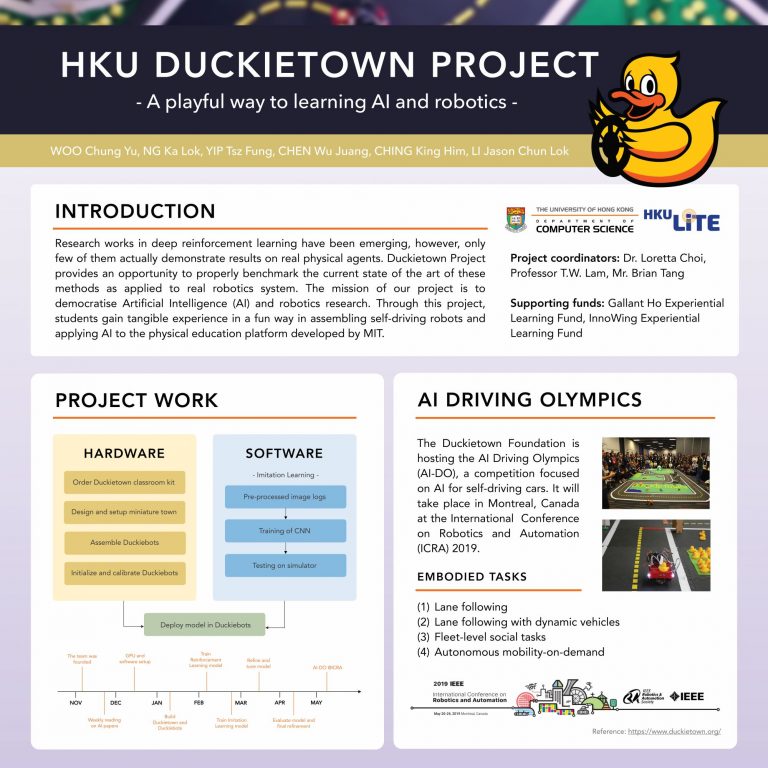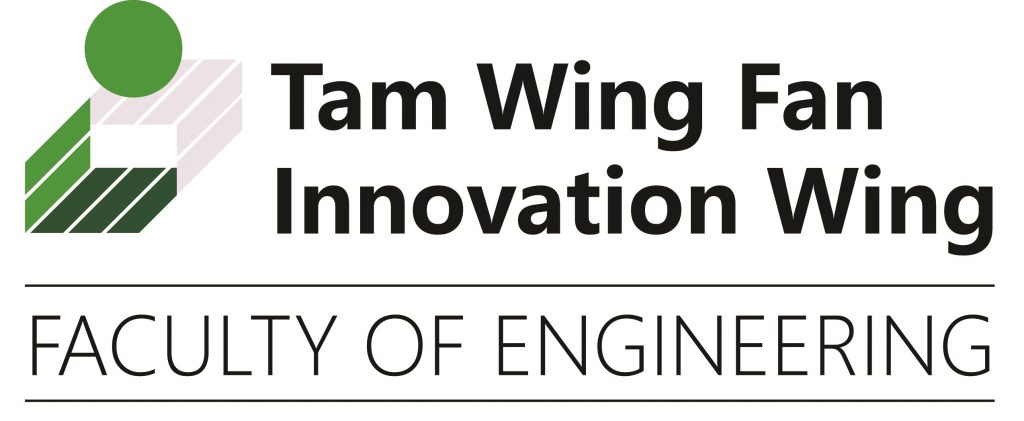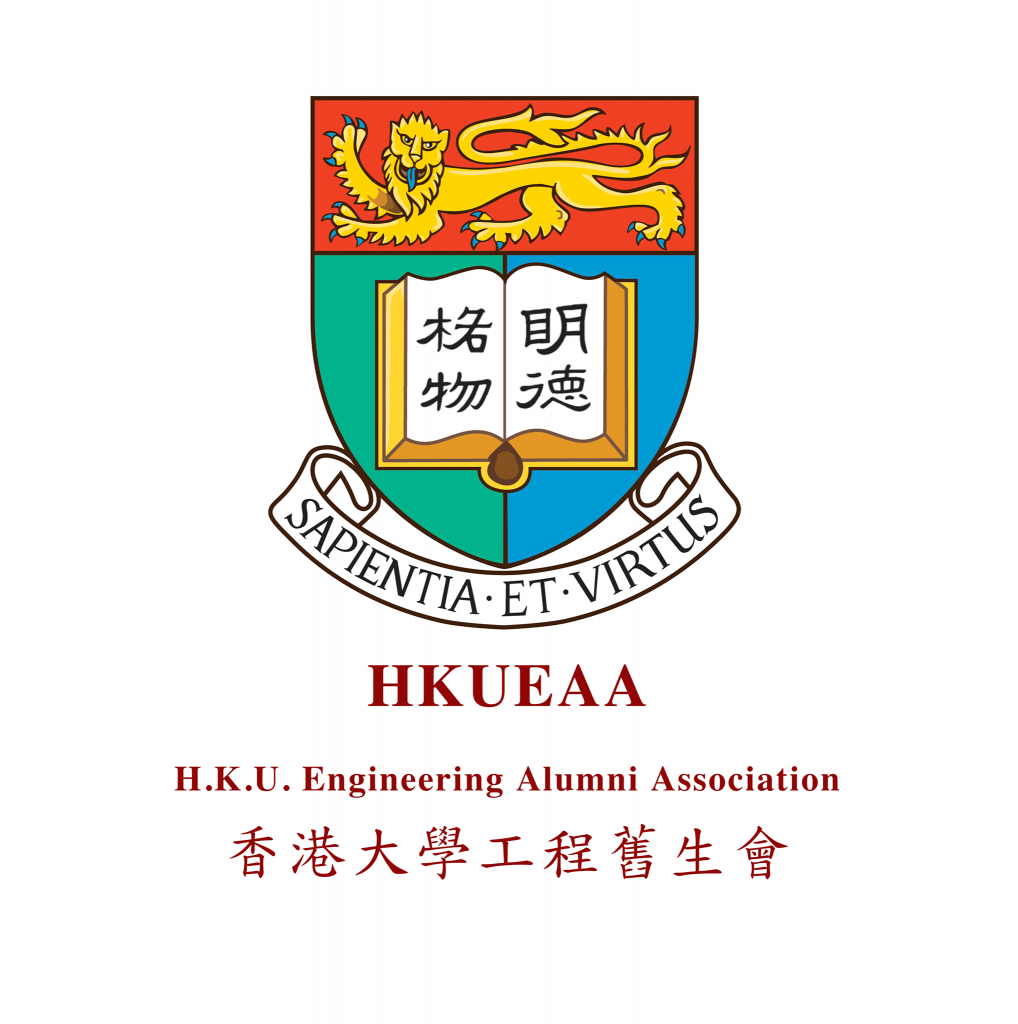Duckietown Project is an interdisciplinary robotics project that aims to democratise A.I. and robotics research. Through this project, students will gain tangible experience in a fun and playful way in prototyping self-driving robots and applying A.I. to the physical education platform developed by MIT for experiential learning.
A project highlight is the students’ participation in the A.I. Driving Olympics (AI-DO) international contests, with the live final events, co-locate with NIPS and ICRA, the prestigious conferences in A.I. and robotics. Through the preparation of the competitions for over half a year, students will undergo intensive training, foster peer collaborations, solidify their knowledge and demonstrate a sustainable learning outcome. Students will compete in employing their A.I. models to perform autonomous real-life tasks (e.g. lane following, point-to-point navigation) on a physical platform. The trips to the live competitions of AI-DO allow students to meet peer contestants of common interest from other academic institutions (e.g. MIT, Tsinghua University, Georgia Tech), and at the same time to conduct intellectual and experience exchange on A.I. and robotics with students and researchers around the globe.
Project leader: Ng Ka Lok, BEng(ME) and Woo Chung Yu (Angel), BEng(CompSc) Team member(s): Yip Tsz Fung, BEng(ME); Ching King Him, BEng(CompSc); Li Jason Chun Lok, BEng(EE); Chen Wu Juang, BEng(CompSc) This project is in collaboration with Mr. Brian Tang, Executive Director, LITE Lab@HKU.
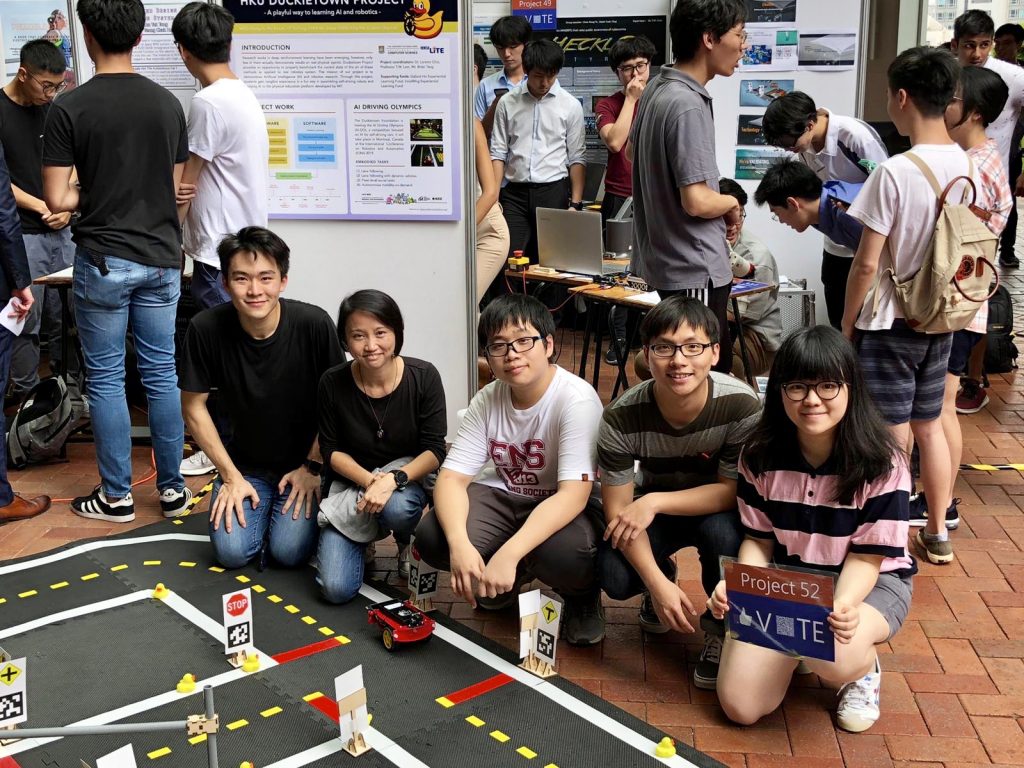
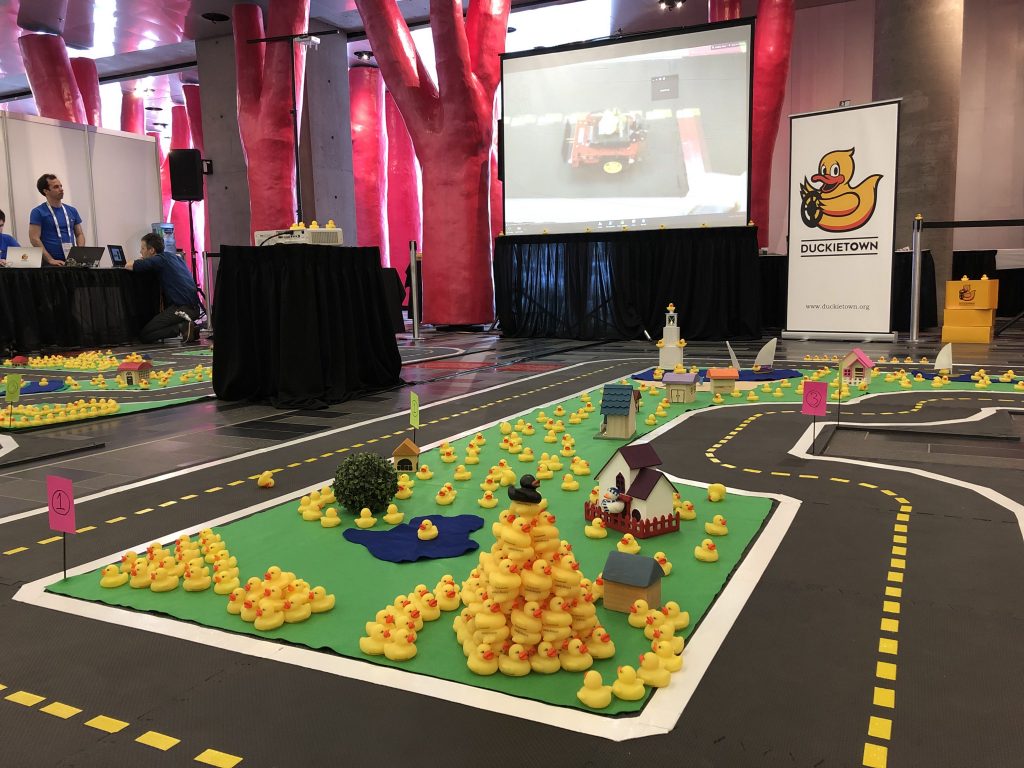
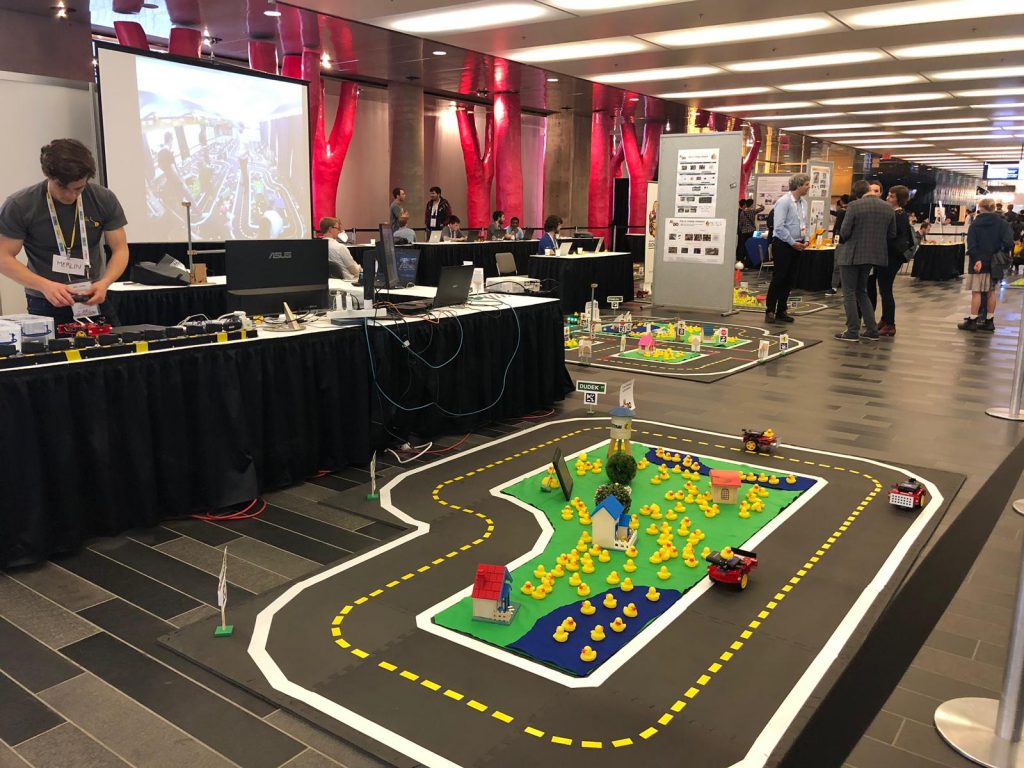
Second runner-up in AI Driving Olympics at ICRA 2019
This article appears in the news of the Faculty of Engineering, the University of Hong Kong
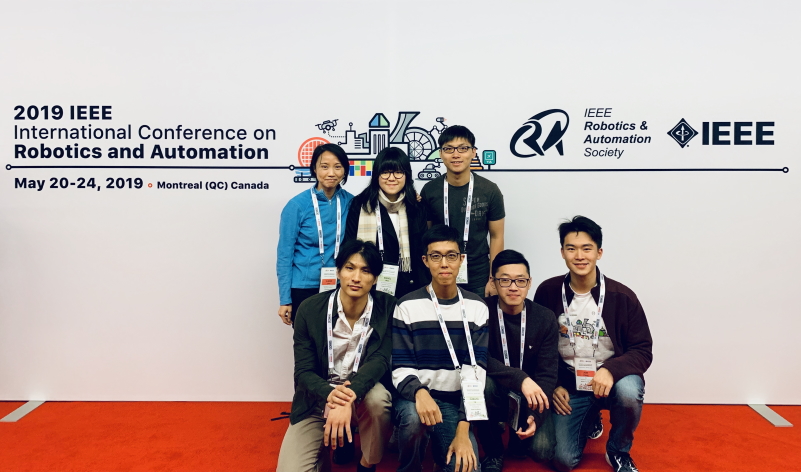
Among 192 competitors from all over the world and a majority of research teams, “HKU DuckieTown Team” formed by six engineering undergraduates seized the 2nd runner-up in the lane-following challenge of the “AI Driving Olympics” held by the Duckietown Foundation at the International Conference on Robotics and Automation (ICRA) in Montreal, Canada on May 20-22, 2019.
The team was supervised by Dr Loretta Choi of the Department of Computer Science, comprised of four of her students, Woo Chung-yu, Ching King-him, Chen Wu-juang and Lo Yat-long and two Mechanical Engineering students Ng Ka-lok and Yip Tsz-fung. The “AI Driving Olympics” was hosted by the Duckietown Foundation where teams had to score the best running in terms of travel distance and survival time of a robotic vehicle (Duckiebot) in a miniature town (Duckietown) that replicates an autonomous driving environment. “HKU DuckieTown Team” trained and deployed an imitation learning algorithm in the Duckiebots that enables them to navigate with inputs from cameras.
Dr. Loretta Y.K. Choi
(Project supervisor, Department of Computer Science)
The students have been working really hard on this project and they demonstrated great teamwork and fighting spirit. It has been an incredibly rewarding experience to work with our undergraduate Engineering students who are passionate and self-motivated in delving into the evolving AI technologies and applications, which involve a lot of exploration and experimentation. The competition provides an invaluable opportunity for students to be able to experiment with their ideas in the context of an impactful auto-driving problem, and actually see how their solution works on a playful physical miniature replica of a driving environment.
Angel Woo (BEng(CompSc), II)
As my very first time travelling overseas for attending an international conference, I would proudly say that this experience was a unique, irreplaceable one. I was once a “software” person who was uninterested in hardware and felt that I could stay within my comfort zone. However, this project has intrigued me to learn the fun part about hardware, and to experience how software and hardware can be integrated with reality. Not only was it an experiential learning project that allowed me to put my knowledge in application, but it also connected me with friends of expertise and granted me the courage to try.
Kelvin Ng (BEng(ME), IV)
Duckietown project is a comprehensive learning experience for me. Throughout the preparation for the AI Driving Olympics held at ICRA 2019 in Montreal, not only did we gain practical experience in hands-on technique for driverless car project, including networking, setting up robotics workflow, machine learning model tuning and so on, we also had a better taste of applying imitation learning to typical control engineering challenges in mechanical engineering discipline. I am glad to meet people from a different engineering background to tackle the common robotics problem and grateful for the opportunity to work with computer science students who provided valuable insights to engineering challenge from another perspective.
Edmond Yip (BEng(ME), IV)
Duckietown has been a competition and education programme about self-driving and has been held by prestigious institutions. This competition deepened my understanding of self-driving and artificial intelligence. It is a precious experience to witness the application of computer intelligence in the real world.
The visit to ICRA has offered me a preview of the global robotics industry and academia. The field has been prospering and offered our society many amazing tech improvements. In the conference, there were other competitions, talks by researchers revealing the latest trends in the field of automation and robotics and demonstrations by industry leaders and academia. The visit provoked my passion for automation and robotics.
Jonathan Ching (BEng(CS), V)
Duckietown competition has given our team the perfect experience to get first-hand knowledge in the self-driving industry. Through this experience, I have come to appreciate the complexity of the industry but the surprisingly clear and organized engineering efforts done by the brilliant engineers.
As a team, we have explored a lot of potential methods in the learning algorithm. With the support of the HKU Gallant Ho Faculty of Engineering and the Department of Computer Science, we were enabled to test out various types of tracks and scenarios so that our bots can run well in the world. Thanks to our brilliant teammate, we trained the model in simulators, and test runs it on the track.
Richie Lo (BEng(CS), VI)
Having been mostly working with simulators in the past, this was indubitably rewarding to apply methods of artificial intelligence to a physical robotic cart. It once again reminded us how far the AI community is from realizing Simulation to Reality (Sim2Real) as what is learned in a simulator is difficult to transfer to the actual environment. As for the conference, It was an incredible experience to interact with the international community at ICRA. It offered us the opportunity to exchange ideas and thoughts with people from all over the world. Specifically, as someone who is specialized in reinforcement learning, I have acquired refreshing perspectives from the robotics community in terms of their views on including learning components in robots for control.
